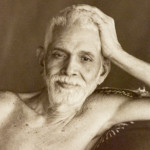Namaste yogins,
The month of November is dedicated to Shankaracharya, the 8th century sage that consolidated and unified the doctrine of Advaita Vedanta, philosophical mother of many modern yoga schools. It is said that Shankaracharya was born in a family of Brahmins, the priests cast, in South India and since its early childhood showed an especially strong inclination towards ascetic living. His father passed away when he was very small and, even though his mother preferred that he became an initiate at an older age, Shankaracharya started his formal studies when he was only eight years old. The legend says that at that early age he walked more than one thousand kilometers in order to meet his teacher.
His life was dedicated to the study and teaching of the tradition. He wrote commentaries to many classical yoga texts, composed poems of great mystic purity and transmitted the deepest understanding of Advaita Vedanta. According to this philosophy, there is no separation between human and divine. Advaita means “not two” and this means “no duality”, therefore the individual soul is the universal soul. “I am Consciousness, I am Bliss, I am Shiva, I am Shiva” wrote Shankaracharya. There is no difference at all between the limitless Absolute and the Self that each being is. At first this seems easy to understand, but if we stop and reflect, most of us are conditioned to believe that human and divine are categories of reality that exist in different levels. If we really saw our divine nature, don´t you think that things would go much better both at the individual as well as at the collective level? We all would be exceedingly happy, suffering and injustice would not exist in the world, since it would be an earthy paradise for all its inhabitants.
The path of self-realization according to this discipline is grounded on an ethical and moral foundation that ensures the correct functioning of the practice; on the intellectual understanding that ensures the state of full liberation; and on the study of texts like the Upanishads, which are the vehicle for contemplation and wisdom. It lacks outer rituals and superficial adoration to objects representing deities because “everything is Brahman, everything is Consciousness”.
May we continue opening windows to infinity!
See you on the mat,
Aham prema
Zaira








